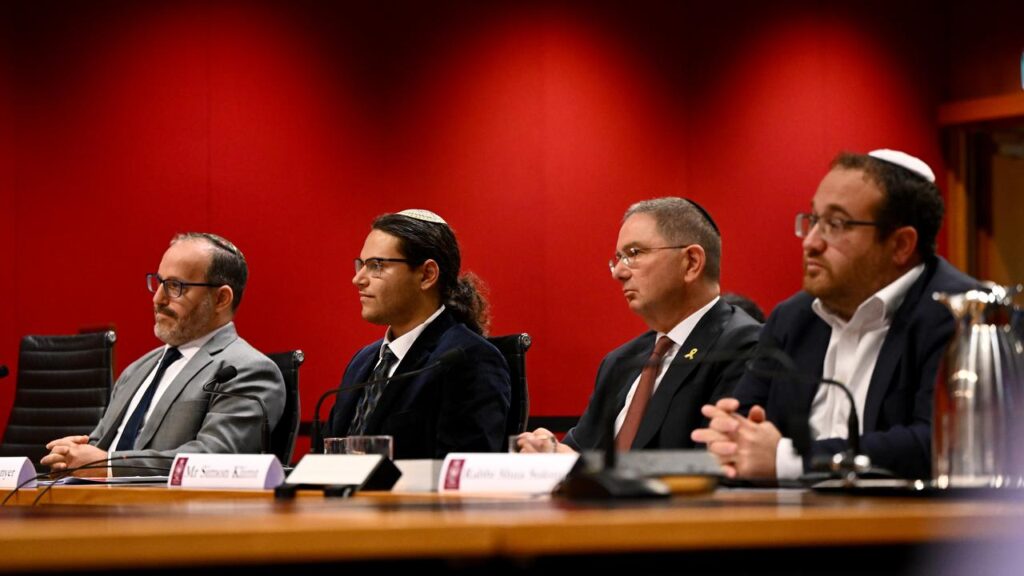Why ‘racist’ preacher couldn’t be charged by police
Jack Gramenz and Alex Mitchell |

An Islamist preacher who called Jewish people “vile” couldn’t face criminal sanctions but new laws might soon allow police to lay charges for similar comments.
A ruling in the Federal Court described Wissam Haddad’s speech as containing “fundamentally racist and anti-Semitic” tropes and making “perverse generalisations” about Jewish people.
But police did not have scope to lay criminal charges when the incident was assessed, a senior officer has revealed.
“The legal advice was it wouldn’t reach the threshold for prosecution,” NSW Police Deputy Commissioner David Hudson told a state parliamentary inquiry on Friday.

The prospects of prosecution would change under laws taking effect in August, he added, although the legislation was not retrospective.
Mr Haddad has been ordered by the court to remove the sermons from social media and not publicly repeat similar statements.
The change targets intentional incitement of racial hatred, while existing laws dealt with publicly threatening or inciting violence.
“The difficulties in the legislation are well known within the Jewish community, which is why the civil action was commenced under a different threshold,” Mr Hudson said.
The new law would “fill that gap”, he said.
Its narrow focus on race has drawn criticism but the law may be expanded to protect other groups in the future.

The inquiry examining anti-Semitism in NSW was set up in February after incidents including the firebombing of a non-religious childcare centre near a synagogue and a Jewish primary school in Sydney’s east.
The state Labor government used the incidents as part of its justification for also expanding anti-protest laws to ban rallies outside places of worship.
Australia’s special envoy to combat anti-Semitism Jillian Segal clashed with politicians at the inquiry over a call to ban pro-Palestine protests she labelled “intimidatory” and “sinister” from city centre streets.
Labor MP Stephen Lawrence suggested her comments were an “uncivil way to describe them and the people participating” and risked creating a perception in the Jewish community that the state was letting them down.
“These sorts of calls that ultimately aren’t grounded in law and reality can have a pernicious effect,” he said.
Ms Segal did not accept that characterisation but acknowledged she had not attended the protests.
She relied on experiences detailed by those in the vicinity who had felt intimidated.
“It was really the vehemence and the violence for what was being advocated that I was objecting to,” Ms Segal said.
“We should be able to go to our city and not feel that.
“They were being jostled, they weren’t allowed to cross, there was shouting … and they were angry they could not access the shops that they wished to.”

Moriah College principal Miriam Hasofer told the inquiry her school was spending $3.9 million a year on security, a figure that had nearly doubled since October 7, 2023, when Hamas attacked Israel.
“Education is constantly disrupted, our teachers are drained, our wellbeing team is overstretched,” she said.
“Our leaders are operating like a counter-terrorism unit and this has become our normal.”
The Jewish school, in Sydney’s east, faced an average of one security incident per week in 2025, she said.

A spate of high-profile attacks over summer included the targeting of a Jewish community leader’s former home and the spray-painting of anti-Semitic slurs in various prominent locations.
Mr Hudson said reports of anti-Semitism have increased.
More than 1100 hate incidents have been reported so far in 2025 – a third of which were anti-Semitic, compared with just over one-fifth of 1300 incidents reported in 2023.
AAP